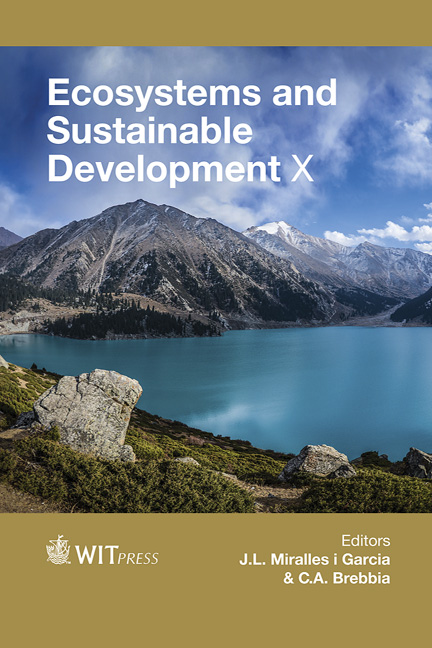Environmental Sustainability Of The Clementine Production Systems In Italy And Spain:. An Approach Based On Life Cycle Assessment
Price
Free (open access)
Transaction
Volume
192
Pages
12
Page Range
173 - 184
Published
2015
Size
413 kb
Paper DOI
10.2495/ECO150161
Copyright
WIT Press
Author(s)
B. F. Nicoló, M. C. De Salvo, C. Ramírez-Sanz, A. V. Estruch, N. Sanjuán, G. Falcone, A. Strano
Abstract
The first step towards a sustainable agriculture is to know the impacts that it generates. Although this is a complex task, since the environmental impact of agriculture depends not only on the production system (e.g. conventional or organic) and farmer practices, but also on the production site (soil and climate conditions). The aim of this study is to assess the environmental impact of clementine production farming systems (conventional, CFS, and organic, OFS) in Italy (Calabria region) and Spain (Comunidad Valenciana) through Life Cycle Assessment (LCA). The functional unit to which the results were referred was 1 hectare (ha−1). The system boundaries considered were from “farm gate to farm gate”, which included the production of the machinery, fertilizers and pesticides and also the field operations. The study is based on one year of primary data, collected from surveys of 19 Italian and 23 Spanish farmers. Ten impact categories were assessed by CML2001 and USEtox methods. No significant differences were found between CFS and OFS in both countries and the impacts present a high variability depending on the farm. In CFS the fertilizers production is the stage most impacting in almost all categories (Global Warming Potential: Italy 92% – Spain 89%; Acidification: Italy 91% – Spain 80%) with the exception for the Ecotoxicity in which field operations have a great contribution (Spain: 97%; Italy: 78%). Regarding OFS, no stage contributes specifically to all the impacts. The main difference between Italian and Spanish organic farms arises in the Ecotoxicity category. In Italy the stage with the greatest contribution is the production of fertilizers (87%), whereas in Spain it is the field operation (95%). In general, the impacts generated by OFS are lower than for CFS. The LCA results of this study allow identifying those agricultural practices that can help to reach a more environmentally sustainable agriculture.
Keywords
life cycle assessment (LCA), citrus crops, comparative assessment, environmental performance





